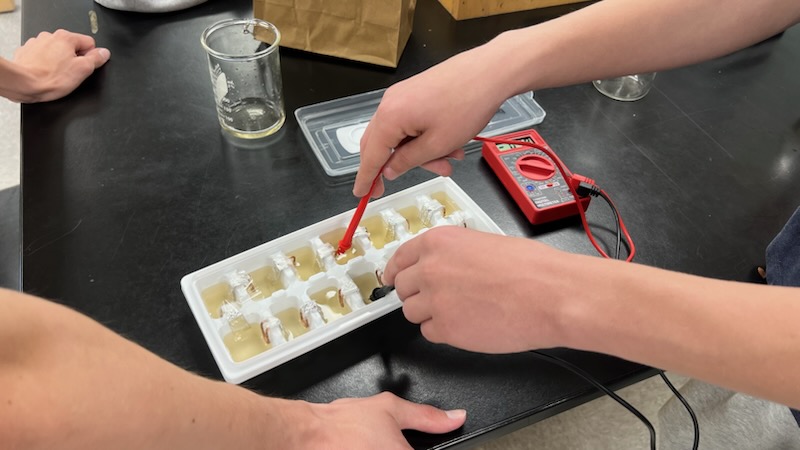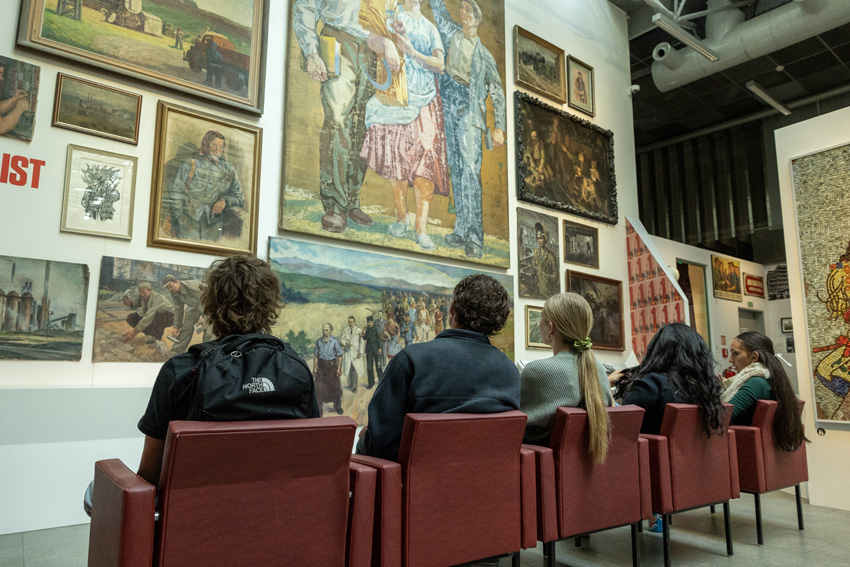This is a three-part feature that explores the impact and effects of bullying, both in person and online. Some names in the articles have been witheld for privacy purposes. One part of this three-part series will be published every three weeks. Check back soon for the next installment, which will be published on Friday, March 15. This article will focus on cyber bullying and how it has transformed the bullying atmosphere.
For the previous installment, read the Feb. 1 article, Part 1: Aggressive behavior discouraged.
The difference between regular bullying and cyber bullying is that usually bullying stops when school ends, but online it can ensue throughout the entire day. Students can often feel trapped, making it feel like they can’t escape the texts, tweets and posts that circle the online world.
Cyber bullying can take place over email, text messages, Facebook, Twitter and many other mediums. Nowadays, most teens are active on smart phones which makes the majority of bullying take place over cellular devices.
According to stopbullying.gov, cyber bullying can take place over a wide variety of mediums, but it’s almost impossible to erase or escape.
“Cyberbullying can happen 24 hours a day, seven days a week, and reach a kid even when he or she is alone,” cyberbullying.gov reported. “It can happen any time of the day or night. Cyberbullying messages and images can be posted anonymously and distributed quickly to a very wide audience. It can be difficult and sometimes impossible to trace the source. Deleting inappropriate or harassing messages, texts and pictures is extremely difficult after they have been posted or sent.”
Technology has been the center for blame on the new cyber bullying issue, but cyberbullying.gov disagrees on who is to blame. Social media can be used in both good and bad ways, the site said.
“Cell phones and computers themselves are not to blame for cyberbullying,” cyberbullying.gov reported. “Social media sites can be used for positive activities, like connecting kids with friends and family, helping students with school and for entertainment. But these tools can also be used to hurt other people. Whether done in person or through technology, the effects of bullying are similar.”
For a senior, whose name has been been removed, cyber bullying began when she was 12 years old over Myspace. Though most students can find a correlation between online bullies and school-time bullies, she was unable to identify what sparked the outburst online.
“To be honest, I have no clue what started it,” she said. “Like any other six grade girl, I was boy-crazed and so my whole class starting calling me a slut. Then we learned about eating disorders in class, and since I was so skinny everyone started calling me an anorexic slut and made mean nicknames that went along with my name.”
For her, almost her entire grade was involved in the acts, even creating a fake Myspace account dedicated to making fun of her. The mental and emotional aspect of the torment gave her a lack of self esteem, especially as a young girl.
“Basically my whole six grade class was involved, except maybe a few,” she said. “It got to the point that they even made a Myspace with my picture on it and the name was ‘Monster Anorexic’ and its status said; ‘you think she’s skinny now just wait until you see her skin and bones in a bathing suit.’ That literally killed my confidence especially when I am just like any other 12 year old trying to figure out who I am.”
The effects of the constant bombardment of name-calling caused a lot of emotional pain for her, creating a hopeless feeling at school and among her peers.
“It made me feel miserable, lonely, unwanted; all of the above,” she said. “It go to the point where no one wanted to be my friend, and I would go to the bathroom at lunch just to cry. Luckily, we had an extended day-care and I was close with the teacher. So, I would always go in there at lunch to eat. It was sort of embarrassing but comforting that at least someone cared.”
She realizes that looking back on the time, she should have informed an adult sooner. But, she wants to also encourage schools and parents to allow students to feel safe enough to speak up for themselves.
“My advice is to stay strong no matter what and do not show to others that they are hurting you,” she said. “But do seek an adult’s attention and let your parents know and get it taken care of. Also, I wish I would of spoke up and told my parents right away before it got so bad. I think that schools and parents should definitely encourage students not to be afraid to speak up if that’s what’s happening to them. To this day, I am still insecure about when people make comments about my weight. I don’t want anyone else to go through such mental pain and hurt.”
A seventh grader, who attends public school, dealt with bullying over Facebook and through interactive video games. He saw a direct correlation between bullying at school and online.
“The bullying took place on Faceboook and on an online interactive game,” he said. “The spark was that I got someone in trouble for bullying me at school and then this person went online and said bad things about me to some kids in our class and posted some things on Facebook about me. There were about three people involved that I know of, but there might have been more.”
For him, trusting his peers at school was difficult because of what was happening at home and online. He suggests that students stand up for themselves and that friends support those who are dealing with something similar.
“It made me feel like this person was going to turn all my friends against me,” he said. “I didn’t know which kids at school I could trust. I want to tell other students struggling with this that they should ignore the person and report cyber bullying right away. I didn’t report it right away, so it only got worse. I wish my friends would have encouraged me to tell the school sooner because I was new to the school. I didn’t tell right away since I didn’t know which teachers I could trust. Eventually, I did tell my parents and they called the principal, but it had already been going on too long.”
As a teacher, Music Director Michael Ogdon has witnessed the effects that bullying leaves on students. Though the acts are rarely visible, the consequences are largely seen and often increase with time, he said.
“Bullying is usually a secret sin,” Ogdon said. “Bullies know better than to be bold and be hurtful in the open. Instead, the act occurs in the shadows, around the corner, under the bleachers, behind the textbook. One or two sentences grows into a couple conversations and expands into a crescendo of cruelty.”
Ogdon has also witnessed the bullied students give up hope and become, what he calls, a shell of who they used to be.
“As a teacher, I don’t often hear the evidence, but I do see the effect,” Ogdon said. “Bullying sucks joy from the life of the target. The shell of who I used to see shrinks over time and quietly gives up. The target is taken down from hopeful to hopeless in a series of dizzying attacks ? everything held as truth begins to be doubted, the target gets discouraged and depressed, experiences damage.”
For more features, read the Feb. 21 article, Rivera dedicates time, maintains FC grounds.






